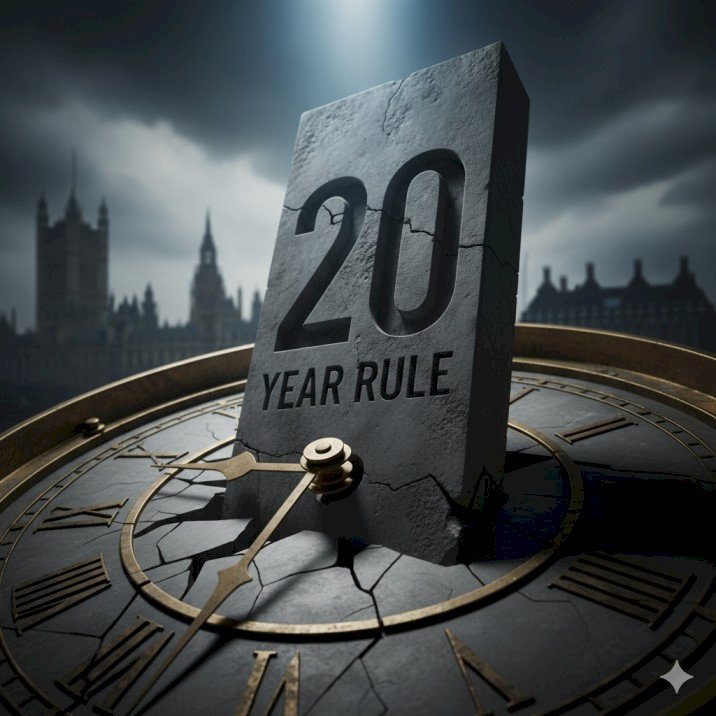UK Unveils Major Asylum System Overhaul With New 20-Year Rule
The UK announces its biggest asylum overhaul in decades, introducing a 20-year settlement wait, temporary refugee status, tighter support rules, and faster deportations.

The UK government has announced the most far-reaching overhaul of its asylum and migration system in modern times, unveiling a set of strict new measures aimed at tightening border control, accelerating deportations, and reshaping long-term refugee protection. The reforms, led by the Labour government and Home Secretary Shabana Mahmood, have sparked intense political and humanitarian debate.
Temporary Protection to Replace Long-Term Refugee Status
A central element of the overhaul is the introduction of a new temporary status known as “Core Protection.” Refugees will no longer receive automatic long-term protection. Instead, they will be granted 30-month temporary status, which will be reviewed every two and a half years.
If the UK government determines that a refugee’s home country has become safe during these periodic reviews, they may be required to return—a significant shift from long-standing UK asylum practice.
Wait for Permanent Settlement Extended to 20 Years
One of the most controversial elements is the dramatic extension of the residency requirement for settlement. Refugees will now need to wait up to 20 years before applying for Indefinite Leave to Remain, compared with the current five years.
Applicants will be required to show ongoing integration, including:
-
Steady employment
-
Regular National Insurance contributions
-
English language proficiency
Ministers argue the change will “restore fairness” and rebuild public trust in the asylum system, but rights groups say it will leave refugees in decades of uncertainty.
Support Rules Tightened and Assets May Be Seized
The government also plans to repeal its legal duty to provide accommodation and financial support to all asylum seekers. Instead, assistance will become discretionary and limited.
Support may be withdrawn from individuals who:
-
Commit offences
-
Ignore deportation orders
-
Are deemed able to support themselves
In a move inspired by Denmark, the government may also seize high-value personal assets such as jewellery or vehicles to offset accommodation costs.
Family Reunification and Human Rights Claims Restricted
The rules for family reunification will be tightened, limiting eligibility mainly to immediate family members, such as children and parents.
The Home Office will also reform how Article 8 of the European Convention on Human Rights, which protects family life, is applied to asylum claims. The change aims to reduce the number of appeals used to avoid removal.
One-Appeal System and Faster Deportations
The appeals process will be streamlined into a single-appeal system. Applicants who fail will face fast-tracked removal, particularly those who entered the UK through irregular routes such as small-boat Channel crossings.
The UK plans to pressure countries—including Angola, Namibia and the Democratic Republic of Congo—to accept deported nationals, with visa restrictions expected for governments that refuse cooperation.
AI to Assist With Age Assessments
Artificial intelligence will be used to help assess the age of undocumented arrivals, particularly those claiming to be minors. The government argues AI will help prevent adults from entering children’s services, but campaigners say the technology carries a risk of errors that could harm vulnerable young people.
Mixed Reaction Across Political Spectrum
The Labour government and the Conservative opposition have both welcomed the reforms, calling them necessary to curb illegal migration and relieve pressure on public services.
However, human rights organisations and some Labour MPs have sharply criticised the overhaul. They argue it undermines the UK’s humanitarian commitments and could create long-term instability for people fleeing conflict and persecution.
Exceptions for Ukraine, Afghanistan, and Hong Kong
Some groups—including Ukrainian refugees—are exempt from the 20-year settlement rule due to the ongoing war. Special pathways will remain for vulnerable Afghans and for holders of the Hong Kong British National (Overseas) visa.
System Under Strain
The UK recorded around 111,000 asylum applications in the past year, with more than 50,000 appeals awaiting decisions. The government says the new system will help reduce backlogs, improve efficiency, and ensure the UK meets both humanitarian and security obligations.
About thetechnews.co.uk
thetechnews.co.uk is a digital-first news platform covering technology, government policy, and innovation. We deliver accurate, clear, and timely reporting on major developments shaping society, including UK policy changes, tech breakthroughs, and the future of digital transformation.
Frequently Asked Questions (FAQs)
1. What is the UK’s new asylum system overhaul?
The UK’s new asylum overhaul is a major reform that changes how refugees are protected, how long they must stay before settlement, and how appeals and deportations are handled. It includes temporary “Core Protection” status and stricter rules for support and family reunion.
2. How long must refugees wait for permanent settlement in the UK now?
Under the new rules, refugees may need to wait up to 20 years before applying for Indefinite Leave to Remain. This is a major increase from the previous five-year requirement.
3. What is Core Protection status in the UK asylum reform?
Core Protection is a new temporary refugee status lasting 30 months. It is reviewed every two and a half years, and refugees may be required to return if their home country becomes safe during these reviews.
4. Can refugees be sent back if their home country becomes safe?
Yes. Under the new reforms, refugees may be returned to their home country if the UK government decides their country is safe during periodic reviews.
5. Will asylum seekers still receive accommodation and financial support?
Support will no longer be guaranteed. It becomes discretionary, with withdrawals for those who break laws, ignore removal orders, or are judged able to support themselves.
6. What happens to asylum seekers’ assets under the new rules?
The government may seize high-value assets—such as jewellery or vehicles—to help offset accommodation costs. This follows a model used in Denmark.
7. How will family reunification change under the new asylum policy?
Family reunion rules will tighten. Only immediate family members, such as children and parents, will qualify in most cases. Article 8 claims based on family life will also be restricted.
8. Will the asylum appeals process change in the UK?
Yes. The system moves to a single-appeal process, and failed applicants will face faster deportations, especially those arriving through irregular routes like small-boat crossings.
9. How will AI be used in the UK asylum system?
AI will assist in age assessments for undocumented arrivals to reduce cases where adults claim to be minors. Rights groups have raised concerns about accuracy and fairness.
10. Are Ukrainians and Afghans affected by the new asylum rules?
Ukrainians are exempt from the 20-year settlement rule, and special pathways remain for vulnerable Afghans and Hong Kong BN(O) visa holders.
11. Why is the UK changing its asylum system now?
Rising caseloads, long backlogs, and political pressure to reduce irregular migration have prompted the reforms. The government says the overhaul will improve efficiency and restore public confidence.

 AnniWeston
AnniWeston 















